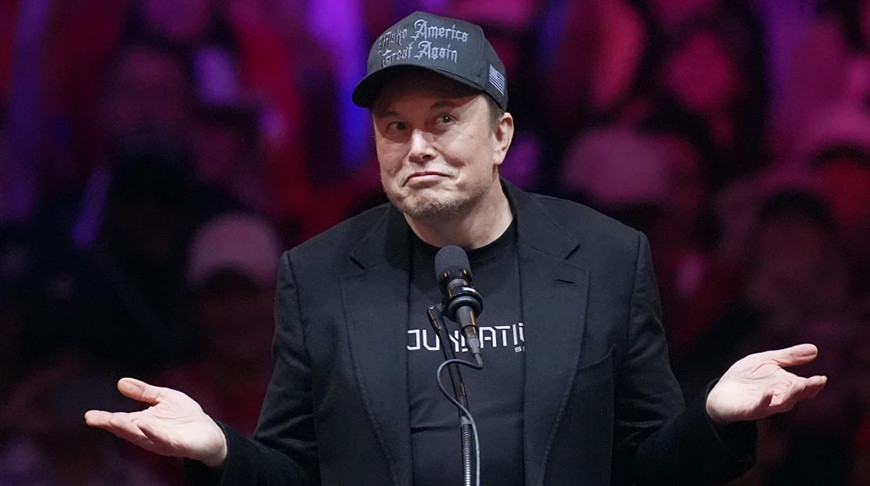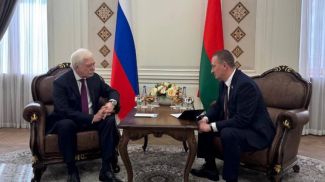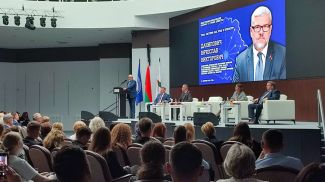
Mouthpieces of the world. That's what the largest social networks, messengers and video hosting sites like X, Facebook, Instagram, YouTube or Telegram are called today. Once such internet platforms were called a bastion of freedom of speech and democracy. Now they are accused of total censorship and double standards, of seeking to control people's emotions, manipulate the minds of the masses and dictate policy to the states.
By the way, the loudest accusations against social media, and mainly against those who own the “mouthpieces of the world”, are now being made by the Western establishment. It is thanks to Washington and Brussels that the stronghold of freedom has mutated into a testing ground for information wars. Take for example the so-called color revolutions, with messengers and social networks being their main tools. The West once used internet platforms to sway situations in non-complying countries. And now those who own these platforms are quite capable of swaying the opinion in Western societies.
A sandbox for global games
Do social media platforms promote certain viewpoints? Do online platforms encourage violent riots? Do they support organized campaigns that aim to influence election results?
These issues are brought up for discussion in the article “Elon Musk and the new world order: the hijacking of the global conversation” published in the British newspaper The Guardian a few days ago.
The Athenians had the Agora, where citizens gathered to debate and decide the issues of the day. In the early 20th century, John Reith envisioned the BBC as such an arena.
“And now we have Elon Musk, a South African-Canadian-American billionaire who treats our political arena like a video game he can casually play around with while hanging out at Donald Trump’s Florida country club,” The Guardian complains.
No one is any longer surprised by Musk's games in the U.S. domestic political arena. During the last election campaign, he bet big on Trump, providing the Republican with substantial financial and information support. And now Musk is called Trump's closest associate and sometimes even the “shadow president” of the United States.
Musk's influence, including on Congress, is perfectly demonstrated by the recent story of the budget bill. Both houses of Congress were ready to support the document, but Musk spoke out against the “outrageous spending bill” and threatened the congressmen with “loss of seats”. A couple of tweets and the people's elected representatives began to speak out against the bill. The document did not pass the subsequent vote, and the U.S. government was on the verge of a shut down.
However, Musk did not stop at the USA and today he is actively practicing interference in the affairs of foreign countries. Even to the point of direct insults.
Thus, Canadian Prime Minister Justin Trudeau, who refused to annex Canada to the United States, was called a “girl” who does not decide anything. “Girl, you're not the governor of Canada anymore, so doesn't matter what you say,” Musk addressed the Canadian prime minister in his social media platform X.
The U.S. billionaire called German Chancellor Olaf Scholz an “incompetent fool” twice recently, calling for his resignation. German President Frank-Walter Steinmeier has been labeled an “anti-democratic tyrant”. At the same time, Musk does not hide his sympathies for the right-wing Alternative for Germany (AfG) party, which he calls the salvation and “the last spark of hope” for Germany. Recently, the businessman held an online discussion with Alice Weidel, a candidate for chancellor from the AdG, on X, thus giving her an opportunity to speak in front of a multimillion audience in the run-up to the parliamentary elections in Germany.
At first Musk criticized the British authorities for downplaying the scale of the crime, and then demanded their resignation. He called for jailing Home Office Under-Secretary Jess Phillips who decided that the investigation should be conducted not at the national, but at the local level. Musk then called British Prime Minister Keir Starmer "evil" and the leader of the Liberal Democrats Ed Davey a 'snivelling cretin'.
"Starmer was complicit in the RAPE OF BRITAIN when he was head of Crown Prosecution for 6 years. Starmer must go and he must face charges for his complicity in the worst mass crime in the history of Britain," Musk wrote on X.
The billionaire also held a vote on X: Should the USA save Britain from a tyrannical government?
In addition, Musk demanded the release of jailed British far-right activist Tommy Robinson, known for his racist and Islamophobic views.
Essentially, all Musk does is posting his personal views on ongoing events. Here is what Italian Prime Minister Giorgia Meloni, one of the few Western politicians who maintains friendly relations with Musk, said about it: "Elon Musk is a very well-known and wealthy person who expresses his ideas. But he is not the first and not the only one. I have seen many famous and wealthy people expressing their views. The problem is when wealthy people use their resources to finance parties, associations and political exponents all over the world to influence the political choices of nation states. That's not what Musk is doing. But I am not aware of Elon Musk financing parties, associations or political exponents around the world. This, for example, is what George Soros does.”
The comparison with Soros is actually quite striking. By and large, if Soros has a network of foundations around the world at his disposal, then Musk has an equally powerful network - social media. Today, Musk's X account has over 212 million subscribers. This is more than the population of Canada, Germany and the UK combined. Therefore, Musk's tweets are no longer just an opinion, but an instrument of influence. When multiplied by millions, this opinion is capable of sending entire governments into a political knockout.
And it no longer matters how much truth there is in Musk's words, and how much is fiction and manipulation. The owner of X taps into social grievances to get social media users riled up, and then it remains to be seen whether the anger snowballs. If the audience is not angry enough, more tweets are posted to push people over the edge. One of the examples is the "desecration of Britain", which spilled into a nationwide scandal. At the same time, the points made by the British prime minister about the distortion of information, and about the work done to investigate violence against children, were completely overshadowed by a wave of criticism and mistrust.
Meanwhile, Musk continued to escalate. This week he wrote another post on X claiming that Starmer tried to interfere in the US presidential election. "He sent operatives to America to undermine the US elections," the businessman wrote on X. Meanwhile, the British newspaper Financial Times claimed that Elon Musk had privately discussed with allies how Keir Starmer could be removed as UK prime minister before the next general election.
In fact, there is nothing new in what Musk is doing. All this has been done by Western elites for years. They have been using conventional and social media to hurt their opponents and unwanted governments. Ultimatums and blackmail, disparaging remarks and direct slurs, sponsoring opposition and NGOs, inciting hatred and enmity, encouraging riots... Belarus has been subjected to smear campaigns orchestrated by the West for many years. Similar tactics are used today by the Western establishment against Georgia. The governments of Hungary and Slovakia also found themselves in the crosshairs only because they dared to defend their national interests.
The situation with Musk is different in only one way. The Western elites have always acted as attackers and they attacked their opponents and covered each other's mistakes collectively. However, Musk's information attack goes against collective solidarity. It is impossible to ignore it, so for the first time in a long period, the Western elites have to defend themselves – and this on their own field.
This situation was very aptly described by Friedrich Merz who is tipped to be Germany's next chancellor: "I cannot recall a comparable case of interference in the election campaign of a friendly country in the history of Western democracies."
And the key word here is not “interference” as it has long become a new normal for the West, but the word "friendly". This is what turned the Western idea of the world upside down.
It is interesting that even Australia has reacted to Musk’s statements. Australia’s Prime Minister Anthony Albanese warned social media owners that any interference in his country’s upcoming parliamentary elections in 2025 is unacceptable. “I don't want to evaluate what people abroad are doing. Everyone is entitled to their own judgments and views on this matter, but we have a law on foreign interference in our country, and elections in Australia are a matter for Australians themselves,” TASS quoted Albanese as saying.
In the past Musk never supported any of the Australian parties or socio-political organizations, but has repeatedly criticized the current government of the country for restricting the access of children and teenagers to social networks as well as for trying to force X to remove content related to the terrorist attack in a Sydney church committed on 15 April 2024.
But while U.S. Internet companies are protected by Trump, non-U.S. social media and messengers are at risk. So is their leadership. Recalling the story of Pavel Durov’s arrest in France last summer will suffice. The Telegram founder was accused of not doing enough to counteract the spread of criminal content through the messenger.
The social network TikTok, which belongs to the Chinese Internet company ByteDance, was also under attack.
According to a law passed in 2024, ByteDance must either sell the social network or stop its operation in the United States by 19 January. Which means TikTok is a few days away from getting blocked in the United States. The justification for the law states that the Chinese government can allegedly manipulate what content TikTok users see.
Meanwhile, American TikTok users have already found an alternative. True, it’s Chinese again. The social networking app RedNote (or Xiaohongshu, as it’s called in China) enjoys top rankings in Apple’s app store in the USA. Users have already started posting videos on the new social network and calling themselves “TikTok refugees.”
The Chinese social network does not leave Brussels alone. To the previous investigations into TikTok’s operation European authorities have added claims of “insufficient control over the risks of interference in the presidential election in Romania.” During the presidential election in Romania, the candidate who used TikTok to release his campaign videos won. The West does not like the candidate and calls him pro-Russian. As a result, the Constitutional Court of Romania decided to invalidate the election results. But apparently, TikTok will have to answer for everything. It should be noted that Musk also spoke about the Romanian election, calling the judges who canceled the voting results dictators.
Meanwhile, in Albania the authorities have already decided to block TikTok for at least a year. As Tirana explained: “to improve physical and digital security in schools.”
Do Western governments have the right to audit, censor or even block Internet sites? Within the legal framework, definitely yes. After all, the information security of the state is at stake. And regulating the Internet space is a way to protect your country in information wars.
Having the ability to influence the content of social networks with hundreds of millions of users and exert pressure on the management of Internet platforms is a different thing. Western elites use this tool to lobby their interests and impose their rules of the game on the rest of the world.
In how Musk is now involving the West in his own games one can see the boomerang law at work. And it can even be seen as justice. But still, it is only the law that should determine what is good or bad, accuse and pass judgment, but not Musk.
This is why the ongoing battles in the West should be considered a much bigger thing than an informational vendetta. The processes that are taking place in the information field today have an impact on the entire world. And they only emphasize how important it is for a country to protect its information sovereignty. Not to let Musk, Zuckerberg, Trump or Scholz dictate terms and impose their rules of the game on us.
By the way, the loudest accusations against social media, and mainly against those who own the “mouthpieces of the world”, are now being made by the Western establishment. It is thanks to Washington and Brussels that the stronghold of freedom has mutated into a testing ground for information wars. Take for example the so-called color revolutions, with messengers and social networks being their main tools. The West once used internet platforms to sway situations in non-complying countries. And now those who own these platforms are quite capable of swaying the opinion in Western societies.
A sandbox for global games
Do social media platforms promote certain viewpoints? Do online platforms encourage violent riots? Do they support organized campaigns that aim to influence election results?
These issues are brought up for discussion in the article “Elon Musk and the new world order: the hijacking of the global conversation” published in the British newspaper The Guardian a few days ago.
The Athenians had the Agora, where citizens gathered to debate and decide the issues of the day. In the early 20th century, John Reith envisioned the BBC as such an arena.
“And now we have Elon Musk, a South African-Canadian-American billionaire who treats our political arena like a video game he can casually play around with while hanging out at Donald Trump’s Florida country club,” The Guardian complains.
No one is any longer surprised by Musk's games in the U.S. domestic political arena. During the last election campaign, he bet big on Trump, providing the Republican with substantial financial and information support. And now Musk is called Trump's closest associate and sometimes even the “shadow president” of the United States.
Musk's influence, including on Congress, is perfectly demonstrated by the recent story of the budget bill. Both houses of Congress were ready to support the document, but Musk spoke out against the “outrageous spending bill” and threatened the congressmen with “loss of seats”. A couple of tweets and the people's elected representatives began to speak out against the bill. The document did not pass the subsequent vote, and the U.S. government was on the verge of a shut down.
However, Musk did not stop at the USA and today he is actively practicing interference in the affairs of foreign countries. Even to the point of direct insults.
Thus, Canadian Prime Minister Justin Trudeau, who refused to annex Canada to the United States, was called a “girl” who does not decide anything. “Girl, you're not the governor of Canada anymore, so doesn't matter what you say,” Musk addressed the Canadian prime minister in his social media platform X.
The U.S. billionaire called German Chancellor Olaf Scholz an “incompetent fool” twice recently, calling for his resignation. German President Frank-Walter Steinmeier has been labeled an “anti-democratic tyrant”. At the same time, Musk does not hide his sympathies for the right-wing Alternative for Germany (AfG) party, which he calls the salvation and “the last spark of hope” for Germany. Recently, the businessman held an online discussion with Alice Weidel, a candidate for chancellor from the AdG, on X, thus giving her an opportunity to speak in front of a multimillion audience in the run-up to the parliamentary elections in Germany.
But it was the so-called “scolding of Britain” that generated the greatest resonance. According to the BBC, in just two days of his campaign against the British authorities - 5 and 6 January - Musk published 54 tweets and retweets criticizing the way the UK investigates cases of violence against minors. The matter is about the events in the north of England, where for nearly 30 years - from the late 1980s to the mid-2010s - more than a thousand British teenagers were raped and sexually exploited by immigrants, mostly Pakistanis. For many years, these crimes were hushed up..
At first Musk criticized the British authorities for downplaying the scale of the crime, and then demanded their resignation. He called for jailing Home Office Under-Secretary Jess Phillips who decided that the investigation should be conducted not at the national, but at the local level. Musk then called British Prime Minister Keir Starmer "evil" and the leader of the Liberal Democrats Ed Davey a 'snivelling cretin'.
"Starmer was complicit in the RAPE OF BRITAIN when he was head of Crown Prosecution for 6 years. Starmer must go and he must face charges for his complicity in the worst mass crime in the history of Britain," Musk wrote on X.
The billionaire also held a vote on X: Should the USA save Britain from a tyrannical government?
In addition, Musk demanded the release of jailed British far-right activist Tommy Robinson, known for his racist and Islamophobic views.
Essentially, all Musk does is posting his personal views on ongoing events. Here is what Italian Prime Minister Giorgia Meloni, one of the few Western politicians who maintains friendly relations with Musk, said about it: "Elon Musk is a very well-known and wealthy person who expresses his ideas. But he is not the first and not the only one. I have seen many famous and wealthy people expressing their views. The problem is when wealthy people use their resources to finance parties, associations and political exponents all over the world to influence the political choices of nation states. That's not what Musk is doing. But I am not aware of Elon Musk financing parties, associations or political exponents around the world. This, for example, is what George Soros does.”
The comparison with Soros is actually quite striking. By and large, if Soros has a network of foundations around the world at his disposal, then Musk has an equally powerful network - social media. Today, Musk's X account has over 212 million subscribers. This is more than the population of Canada, Germany and the UK combined. Therefore, Musk's tweets are no longer just an opinion, but an instrument of influence. When multiplied by millions, this opinion is capable of sending entire governments into a political knockout.
And it no longer matters how much truth there is in Musk's words, and how much is fiction and manipulation. The owner of X taps into social grievances to get social media users riled up, and then it remains to be seen whether the anger snowballs. If the audience is not angry enough, more tweets are posted to push people over the edge. One of the examples is the "desecration of Britain", which spilled into a nationwide scandal. At the same time, the points made by the British prime minister about the distortion of information, and about the work done to investigate violence against children, were completely overshadowed by a wave of criticism and mistrust.
Meanwhile, Musk continued to escalate. This week he wrote another post on X claiming that Starmer tried to interfere in the US presidential election. "He sent operatives to America to undermine the US elections," the businessman wrote on X. Meanwhile, the British newspaper Financial Times claimed that Elon Musk had privately discussed with allies how Keir Starmer could be removed as UK prime minister before the next general election.
In fact, there is nothing new in what Musk is doing. All this has been done by Western elites for years. They have been using conventional and social media to hurt their opponents and unwanted governments. Ultimatums and blackmail, disparaging remarks and direct slurs, sponsoring opposition and NGOs, inciting hatred and enmity, encouraging riots... Belarus has been subjected to smear campaigns orchestrated by the West for many years. Similar tactics are used today by the Western establishment against Georgia. The governments of Hungary and Slovakia also found themselves in the crosshairs only because they dared to defend their national interests.
The situation with Musk is different in only one way. The Western elites have always acted as attackers and they attacked their opponents and covered each other's mistakes collectively. However, Musk's information attack goes against collective solidarity. It is impossible to ignore it, so for the first time in a long period, the Western elites have to defend themselves – and this on their own field.
This situation was very aptly described by Friedrich Merz who is tipped to be Germany's next chancellor: "I cannot recall a comparable case of interference in the election campaign of a friendly country in the history of Western democracies."
And the key word here is not “interference” as it has long become a new normal for the West, but the word "friendly". This is what turned the Western idea of the world upside down.
Dark backstage of social media
“Germans won't vote for the AfG just because an American billionaire asks them to. But social media is a tool that can change public opinion by taking ideas that were once considered extreme and, over time, turning them into the mainstream,” The New York Times writes reflecting on the implications of Musk's information attacks.
In this respect, the influence of social media is not just down to Musk's persona. Everything the owner of X says is on the surface and can be responded to. However, the modern technology used by online venues is hidden from view. Algorithms of social networks collect information about users, analyze their interests and preferences, and then decide what a person should see and what not, what news he should read, what people to add as friends, what communities to join.
“After Musk's intervention, Starmer expressed alarm at the misinformation. But this is only a superficial view of the problem. Lies have always been present in our political life..... Technology has innovated: systems to target, scale, amplify, suck your data, and manipulate your every vulnerability. The real question is whether we can make the technology that has upended our national dialogue work for democracy,” The Guardian wondered.
In fact, Western elites have long been trying to make social networks work for “democracy.”Two years ago, a number of American journalists - Matthew Taibbi, Bari Weiss, Li Fang and others - published correspondence from Musk's previous management of social network X (formerly Twitter). From the disclosed information it follows that the CIA and the FBI regularly interfered in the process of moderation of the content of the social network, pointing out the need to block certain information. For example, tweets about the coronavirus were censored, as well as about the scandal with the publication of data from the laptop of the U.S. President’s son Hunter Biden.
The social network Facebook (part of Meta Corporation) has also been subjected to total control by the U.S. authorities. In a recent interview, its owner Mark Zuckerberg compared the censorship and pressure of the U.S. authorities, which he had to face, to the events of George Orwell's dystopia “1984”. According to him, representatives of the administration of U.S. President Joe Biden demanded the removal of certain publications on the platforms owned by Meta Corporation.
However, the matter was not limited to the removal of undesirable information. For years, Western governments and intelligence services have been feeding certain types of information to social networks to promote ideas and lobby their interests. Some facts were revealed by the management of Internet platforms. For example, in 2022, Meta reported that individuals associated with the U.S. military had created dozens of accounts and groups on Facebook that spread pro-American propaganda abroad, primarily in Russia, China, and Iran.
Thus, social networks have become a real testing ground for Western intelligence services and governments, where all kinds of weapons of modern information warfare have been tested. However, it has not been possible to put a leash on Internet sites. Against the background of Musk's information offensive, Zuckerberg also became bolder, announcing a change in the content moderation policy. He warned of lifting restrictions on speech on his platforms, including Facebook and Instagram, to “restore freedom of expression.”
“We're going to get back to our roots and focus on reducing mistakes, simplifying our policies and restoring free expression on our platforms. More specifically, here's what we're going to do. First, we're going to get rid of fact-checkers and replace them with community notes similar to X,” Zuckerberg said. He also admitted that the methods of content moderation have gone too far. After that, Washington reminded the head of Meta that the refusal to check facts is contrary to American justice.
With his statement, Zuckerberg once again reminded us that dark deeds are going on behind the scenes of social networks. Both Western governments, which want to keep control of public opinion, and the management of Internet platforms are fighting for their interests. Sometimes they cooperate, sometimes they confront.
A recent statement by Telegram co-founder Pavel Durov is interesting in this regard. After Zuckerberg's promise to restore freedom of expression, Durov said that his messenger supports freedom regardless of the outcome of the U.S. election.
“Today, other platforms are announcing they’ll now have less censorship,” Durov wrote, adding a laughing emoji. “But the real test of their newly discovered values will come once the political winds change again. It’s easy to say you support something when you risk nothing.”
Internet-age set of rules
"Until the curtain around how the Musks and Zucks operate lifts, we are a society operating in the dark, influenced and shaped by forces we cannot see," The Guardian writes.
In fact, the West has been dealing with the issue of internet regulation, including social networks, for a long time. This has been done not only through secret measures, such as forcing the management of internet platforms to fulfill the "order", but also through legislation. It is worth noting that the guardians of democracy and freedom of expression in Washington and Brussels traditionally criticize the laws aimed at protecting the information space in non-Western countries such as Belarus, Russia, and China.
Meanwhile, the EU's Digital Services Act (DSA) came into force in 2023, significantly increasing control over 19 major platforms such as TikTok, X, Instagram, Facebook, YouTube, Google, Wikipedia and others. Brussels said then that the law aims to protect democracy and fight misinformation. The priorities of the new law are particularly relevant in the run-up to the EU parliamentary elections. According to the DSA, posts on social media that promote hatred, aggression or misinformation are to be removed promptly.
"The European Union has been the first in the world to introduce an internet-age set of rules. All European digital realities from online shopping to social media posts will have to comply with these rules...The whole world is watching as Europe attempts to create a constitution for the internet. Developed democracies are ready to adopt this experience, if it proves successful and prevails in its battle against internet companies seeking to maintain their own rules," the BBC reported.
The law has also been criticized. Many people believe that the new law will "lock up social networks". Thus, French politician and leader of the Patriots party Florian Philippot called the DSA an extremely dangerous tool that would lead to censorship in social media throughout the European Union. He noted that it would also lead to audits and a kind of raids against platforms that do not adequately censor content.
Meta Platforms is now waiting for a DSA compliance check. Zuckerberg's statement about restoring freedom of expression disappointed not only the U.S. but also the European authorities. For example, Thomas Regnier, an EU representative, stated that the EU might launch an investigation into Meta.
In his words, the EC needs first to receive a risk assessment to determine whether the company complies with the DSA. If the company's measures are found to be non-compliant with the law, the EC will initiate legal proceedings for breach of the law and fines may be imposed.
According to Euronews, the fines can reach up to 6% of the company's annual global turnover. The DSA's non-compliance detection process is too slow. However, the EU holds all the cards, including sanctions.
"There are other instruments that can be used in extreme cases," explains J. Scott Marcus, a researcher at the Brussels based think tank CEPS (Center for European Policy Studies). "Take, for example, the measures taken to block Russia Today and Sputnik at the time of the sanctions against Russia... This was done as part of the sanctions regime implemented by the Council acting in its foreign policy configuration."
More than information vendetta
It is still hard to believe that the European Commission would dare to impose sanctions against U.S. Meta or X. Especially after Donald Trump came to power. Nevertheless, at the national level there are already calls for Brussels to take tough measures to protect information security.
Polish Deputy Minister of Foreign Affairs Teofil Bartoszewski spoke in favor of introducing a number of restrictions on the internet. "Should the state control content on the internet? I think yes. There are no restrictions on the internet," he said.
The diplomat also said that the Polish authorities have prepared a bill to prevent people from hiding behind anonymous nicknames on the Internet. "If someone writes anything illegal, we will be able to identify this user and bring charges," he stated.
Norway's Prime Minister Jonas Gahr Støre expressed concern over Musk's involvement in the internal affairs of countries outside the United States. "I find it worrying that a man with enormous access to social media and huge economic resources involves himself so directly in the domestic affairs of other countries," the prime minister said.
"Until the curtain around how the Musks and Zucks operate lifts, we are a society operating in the dark, influenced and shaped by forces we cannot see," The Guardian writes.
In fact, the West has been dealing with the issue of internet regulation, including social networks, for a long time. This has been done not only through secret measures, such as forcing the management of internet platforms to fulfill the "order", but also through legislation. It is worth noting that the guardians of democracy and freedom of expression in Washington and Brussels traditionally criticize the laws aimed at protecting the information space in non-Western countries such as Belarus, Russia, and China.
Meanwhile, the EU's Digital Services Act (DSA) came into force in 2023, significantly increasing control over 19 major platforms such as TikTok, X, Instagram, Facebook, YouTube, Google, Wikipedia and others. Brussels said then that the law aims to protect democracy and fight misinformation. The priorities of the new law are particularly relevant in the run-up to the EU parliamentary elections. According to the DSA, posts on social media that promote hatred, aggression or misinformation are to be removed promptly.
"The European Union has been the first in the world to introduce an internet-age set of rules. All European digital realities from online shopping to social media posts will have to comply with these rules...The whole world is watching as Europe attempts to create a constitution for the internet. Developed democracies are ready to adopt this experience, if it proves successful and prevails in its battle against internet companies seeking to maintain their own rules," the BBC reported.
The law has also been criticized. Many people believe that the new law will "lock up social networks". Thus, French politician and leader of the Patriots party Florian Philippot called the DSA an extremely dangerous tool that would lead to censorship in social media throughout the European Union. He noted that it would also lead to audits and a kind of raids against platforms that do not adequately censor content.
Meta Platforms is now waiting for a DSA compliance check. Zuckerberg's statement about restoring freedom of expression disappointed not only the U.S. but also the European authorities. For example, Thomas Regnier, an EU representative, stated that the EU might launch an investigation into Meta.
According to Euronews, the fines can reach up to 6% of the company's annual global turnover. The DSA's non-compliance detection process is too slow. However, the EU holds all the cards, including sanctions.
"There are other instruments that can be used in extreme cases," explains J. Scott Marcus, a researcher at the Brussels based think tank CEPS (Center for European Policy Studies). "Take, for example, the measures taken to block Russia Today and Sputnik at the time of the sanctions against Russia... This was done as part of the sanctions regime implemented by the Council acting in its foreign policy configuration."
More than information vendetta
It is still hard to believe that the European Commission would dare to impose sanctions against U.S. Meta or X. Especially after Donald Trump came to power. Nevertheless, at the national level there are already calls for Brussels to take tough measures to protect information security.
Polish Deputy Minister of Foreign Affairs Teofil Bartoszewski spoke in favor of introducing a number of restrictions on the internet. "Should the state control content on the internet? I think yes. There are no restrictions on the internet," he said.
The diplomat also said that the Polish authorities have prepared a bill to prevent people from hiding behind anonymous nicknames on the Internet. "If someone writes anything illegal, we will be able to identify this user and bring charges," he stated.
Norway's Prime Minister Jonas Gahr Støre expressed concern over Musk's involvement in the internal affairs of countries outside the United States. "I find it worrying that a man with enormous access to social media and huge economic resources involves himself so directly in the domestic affairs of other countries," the prime minister said.
And French Minister of Foreign Affairs Jean-Noel Barrot called on the European Commission to protect EU countries from such interference. Or return the right to defend themselves at the national level to countries of the European community.
The Spanish government spokesperson Pilar Alegria said that digital platforms such as X should act “in a completely neutral manner and, above all, without any interference.”
The Spanish government spokesperson Pilar Alegria said that digital platforms such as X should act “in a completely neutral manner and, above all, without any interference.”
It is interesting that even Australia has reacted to Musk’s statements. Australia’s Prime Minister Anthony Albanese warned social media owners that any interference in his country’s upcoming parliamentary elections in 2025 is unacceptable. “I don't want to evaluate what people abroad are doing. Everyone is entitled to their own judgments and views on this matter, but we have a law on foreign interference in our country, and elections in Australia are a matter for Australians themselves,” TASS quoted Albanese as saying.
In the past Musk never supported any of the Australian parties or socio-political organizations, but has repeatedly criticized the current government of the country for restricting the access of children and teenagers to social networks as well as for trying to force X to remove content related to the terrorist attack in a Sydney church committed on 15 April 2024.
But while U.S. Internet companies are protected by Trump, non-U.S. social media and messengers are at risk. So is their leadership. Recalling the story of Pavel Durov’s arrest in France last summer will suffice. The Telegram founder was accused of not doing enough to counteract the spread of criminal content through the messenger.
The social network TikTok, which belongs to the Chinese Internet company ByteDance, was also under attack.
According to a law passed in 2024, ByteDance must either sell the social network or stop its operation in the United States by 19 January. Which means TikTok is a few days away from getting blocked in the United States. The justification for the law states that the Chinese government can allegedly manipulate what content TikTok users see.
Meanwhile, American TikTok users have already found an alternative. True, it’s Chinese again. The social networking app RedNote (or Xiaohongshu, as it’s called in China) enjoys top rankings in Apple’s app store in the USA. Users have already started posting videos on the new social network and calling themselves “TikTok refugees.”
The Chinese social network does not leave Brussels alone. To the previous investigations into TikTok’s operation European authorities have added claims of “insufficient control over the risks of interference in the presidential election in Romania.” During the presidential election in Romania, the candidate who used TikTok to release his campaign videos won. The West does not like the candidate and calls him pro-Russian. As a result, the Constitutional Court of Romania decided to invalidate the election results. But apparently, TikTok will have to answer for everything. It should be noted that Musk also spoke about the Romanian election, calling the judges who canceled the voting results dictators.
Meanwhile, in Albania the authorities have already decided to block TikTok for at least a year. As Tirana explained: “to improve physical and digital security in schools.”
Do Western governments have the right to audit, censor or even block Internet sites? Within the legal framework, definitely yes. After all, the information security of the state is at stake. And regulating the Internet space is a way to protect your country in information wars.
Having the ability to influence the content of social networks with hundreds of millions of users and exert pressure on the management of Internet platforms is a different thing. Western elites use this tool to lobby their interests and impose their rules of the game on the rest of the world.
In how Musk is now involving the West in his own games one can see the boomerang law at work. And it can even be seen as justice. But still, it is only the law that should determine what is good or bad, accuse and pass judgment, but not Musk.
This is why the ongoing battles in the West should be considered a much bigger thing than an informational vendetta. The processes that are taking place in the information field today have an impact on the entire world. And they only emphasize how important it is for a country to protect its information sovereignty. Not to let Musk, Zuckerberg, Trump or Scholz dictate terms and impose their rules of the game on us.
Vita Khanatayeva,
BelTA













